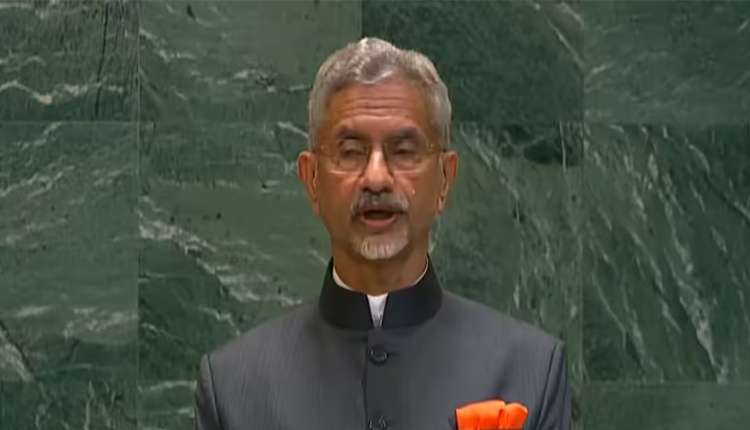New Delhi: In a powerful address to the 80th session of the United Nations General Assembly (UNGA), India’s External Affairs Minister Dr S Jaishankar delivered a stark warning on global terrorism, labelling a neighbouring country as its epicentre and urging the world to uproot the menace without compromise.
Jaishankar highlighted India’s long-standing battle against cross-border terrorism, pointing to the brutal Pahalgam attack as a grim reminder.
“India’s neighbour is the epicentre of terrorism,” he asserted, not naming Pakistan directly but leaving little doubt. In retaliation to such assaults, India has struck terror hideouts, he noted, emphasising that eradicating terrorism must now become a global priority.
Jaishankar called for zero tolerance and stringent action from the international community, emphasising the need to eradicate terrorism from its roots.
The minister’s speech is being hailed as India’s clearest stance yet on transnational terror threats. He reminded the assembly that India has endured terrorism for decades, largely due to this neighbouring nation’s role as a “global hub” for such activities.
His words resonated amid rising calls for unified action against terror networks that transcend borders.
Opening his address, Jaishankar reflected on the UN’s legacy, eight decades after its founding. “We gather here after eight decades of this institution’s establishment,” he said, invoking the UN Charter’s pledge to prevent war, foster peace, and uphold human dignity.
With the end of colonialism, the world embraced its diversity, positioning the UN as a natural forum for multilateralism.
However, Jaishankar questioned whether the UN has lived up to global expectations. Noting that membership has quadrupled and its scope expanded exponentially, he highlighted the era of globalisation, where development goals, climate change, trade, and access to food and health services have become central. “The agenda has broadened, and shared priorities like climate action have emerged,” he added, underscoring the need for the UN to adapt to contemporary challenges.
The address comes at a time when geopolitical tensions simmer, with India’s firm diplomacy drawing attention.
Analysts view it as a reinforcement of New Delhi’s proactive foreign policy, pushing for reforms in global institutions to better combat threats like terrorism.



Comments are closed.